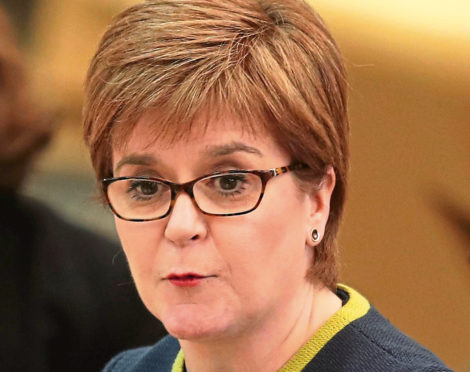
The Scottish Government has come under fire after a minister conceded it is not possible to estimate how much cash has been spent trying to reduce health inequalities.
Public health minister Joe Fitzpatrick said work to tackle the problem takes place “across a significant number of strategies and policies”, and “it is not, therefore, possible to estimate spend on reducing health inequalities”.
Conservatives claimed SNP ministers “can’t even tell us how much money” has been invested in what was previously described as a “priority” area.
As health secretary in 2008, Nicola Sturgeon said tacking the health gap between rich and poor was a “top priority” for the Government.
Adam Tomkins, a Tory MSP for Glasgow, submitted a written question to ministers asking how much funding had been allocated to NHS initiatives aimed at reducing health inequalities over the last decade.
In response, Mr Fitzpatrick said: “There is a large range of actions and activities delivered across NHS Scotland which contributes, directly and indirectly, to tackling health inequalities.
“As we noted in our response to the Health and Sports Committee’s recent report on preventative action and public health, the Scottish Government does not seek to dictate a single concept of prevention and does not require accounts based on that.
“Our approach to health inequalities is across a significant number of strategies and policies which – from minimum unit pricing for alcohol to proposals to restrict the marketing and promotion of high fat, salt and sugar foods right through to the reporting of Integration Authorities – are clearly about maximising quality and sustainability in current care arrangements and preventing future harm.
“It is not, therefore, possible to estimate spend on reducing health inequalities.”
Mr Tomkins said: “Nicola Sturgeon made a clear commitment that tackling health inequalities would be her top priority.
“Like me, she represents the city of Glasgow – a city where health inequalities remain stubbornly persistent and where mortality is higher than similar post-industrial cities elsewhere in the UK, such as Liverpool and Manchester.
“Yet more than a decade on, her SNP Government can’t even tell us how much money has been invested in this so-called priority area.
“People in poorer areas are still dying younger, they’re still far more likely to be struck by disease, and when that illness occurs they’re less likely to survive it.
“This is an SNP Government which might talk a good game on inequality and poverty, but the reality is that it’s failing to deliver on its promises.”

Enjoy the convenience of having The Sunday Post delivered as a digital ePaper straight to your smartphone, tablet or computer.
Subscribe for only £5.49 a month and enjoy all the benefits of the printed paper as a digital replica.
Subscribe